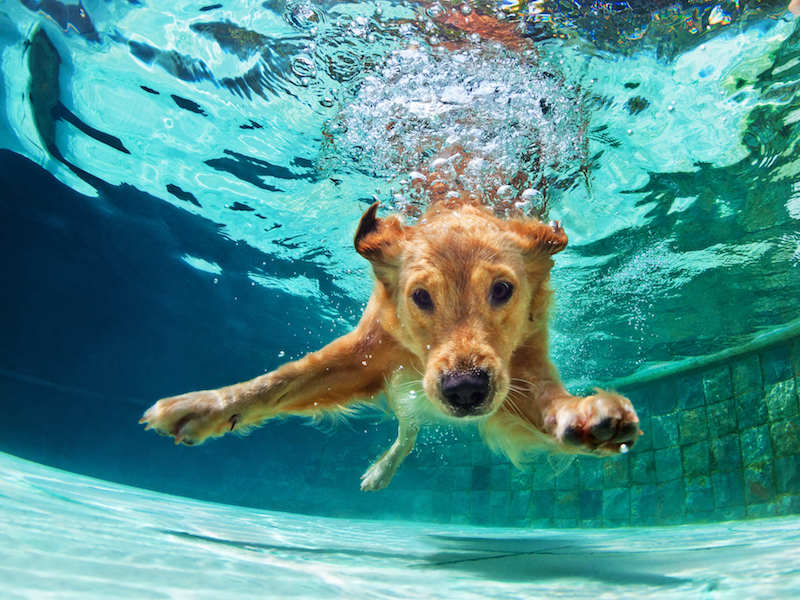
There are a lot of different things that can damage the delicate technology that makes a hearing aid work the way it does, but few have the impact of water. In fact, you could call moisture kryptonite for hearing aids. Even if you already know that and take care to protect your investment from the shower, pool, or a good face washing, more than likely you are missing the most common cause of water damage in hearing aids: humidity.
Invisible moisture has the highest chance of causing irreparable damage. It’s time to understand more about why humidity is a negative thing for hearing aids.
Let’s Talk About Humidity
Humidity is a word that gets talked about a lot, commonly during the summer months, but what does it mean? PBS defines humidity as water molecules in the air. When displayed as a percentage, for example, the relative humidity is 40 percent today, it refers to the amount of water vapor in the air compared to what air could hold. When you can feel wetness in the air, that means the relative humidity is high.
Humans cool their body by sweating so that makes us very sensitive to humidity. When humidity levels are too high our sweat will not evaporate as quickly. Moisture and electronics don’t mix well and that includes hearing aids.
Why Electronics Have a Problem with Humid Weather
Oddly enough, electronics are not just sensitive to high humidity but low levels as well. When water vapor percentages are high condensation can collect on the delicate mechanisms that make electronic devices function, and low humidity can lead to brittle core materials.
Internal electronics are the reason your hearing aids work. Modern digital hearing aids use a state-of-the-art signal processing chip to manage noise. It’s what is behind elegant features like:
- Noise reduction
- Anti-feedback
- Targeted listening programs
- Digital sound streaming
Moisture can collect within the hearing aid when humidity is high and ruin that component. It can corrode elements inside the casing and ruin batteries also. It’s the equivalent of dropping your hearing aid in a tub of water.
Controlling Humidity
If you are looking at hearing aids, look for products that are water-resistant. Having this feature doesn’t mean you can go swimming with your hearing aids in place, but it does give some protection from humidity and other weather-related issues like getting caught in an unexpected rainstorm or even sweat when you work out.
If you live in a humid area, think about using a room or house dehumidifier to decrease water vapor indoors. It’s an investment that will help you and your family in numerous ways and protect other electronic devices like that costly TV you got for Christmas. Dehumidifiers reduce the risk of mold, mildew and dust mites, so everyone breathes a little better, too. However, protecting your hearing aid more completely will require additional thinking. You will need to take other steps at the same time.
Consider buying a dehumidifier designed especially for hearing aids. There is one out there for every budget. Silica gel crystals in a drying kit are used to protect electronics. Moisture is eliminated by putting the hearing aids into the dehumidifier for a couple of hours. Drying your hearing aids as you sleep at night can be done using specially designed storage containers. In a pinch, you could use a bag of uncooked rice to remove moisture.
Get in the habit of opening the battery compartment every time you store your hearing aids. When you expose the battery and inner elements to air by leaving the door open, condensation can evaporate by itself. Don’t just do this in the summer, do it all year round.
A cool dry place is the ideal for storage. On the table in the sun, in the glove compartment, or in a hot room are examples of where not to store your hearing aids.
Thinking Past Humidity
Air vapor is not the only moisture that can damage hearing aids. Take precautions to protect them from other kinds of wet such as:
- Make sure all lotion or sunscreen is fully absorbed before touching your hearing aids or putting them in your ears.
- Find a safe place to store your hearing aids if headed for the pool or beach.
- When exercising wear a sweatband. It’s a good practice whether you wear your hearing aids when you workout or not. Later that sweat will cause problems.
- Try not to put your hearing aid down on wet surfaces. You don’t want to place it in a wet spot left by a glass or coffee cup.
Your hearing aids are a valuable asset, so treat them that way. Keep in mind how moisture can damage your hearing aids and make sure to prevent water from getting in them. If your hearing aid already has water damage make an appointment for service with a hearing aid specialist.